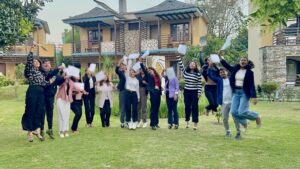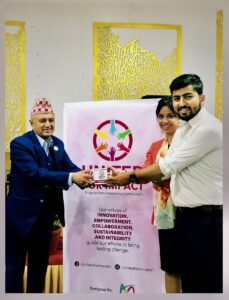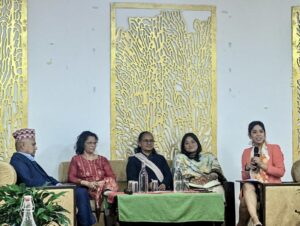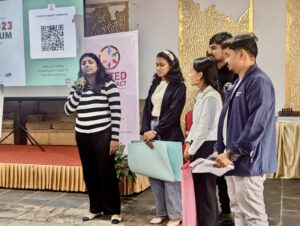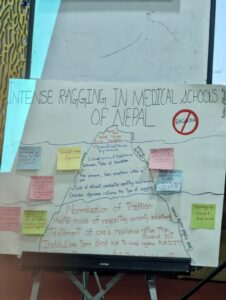-
-
-
Anamnagar, Kathmandu, Nepal

YMHL
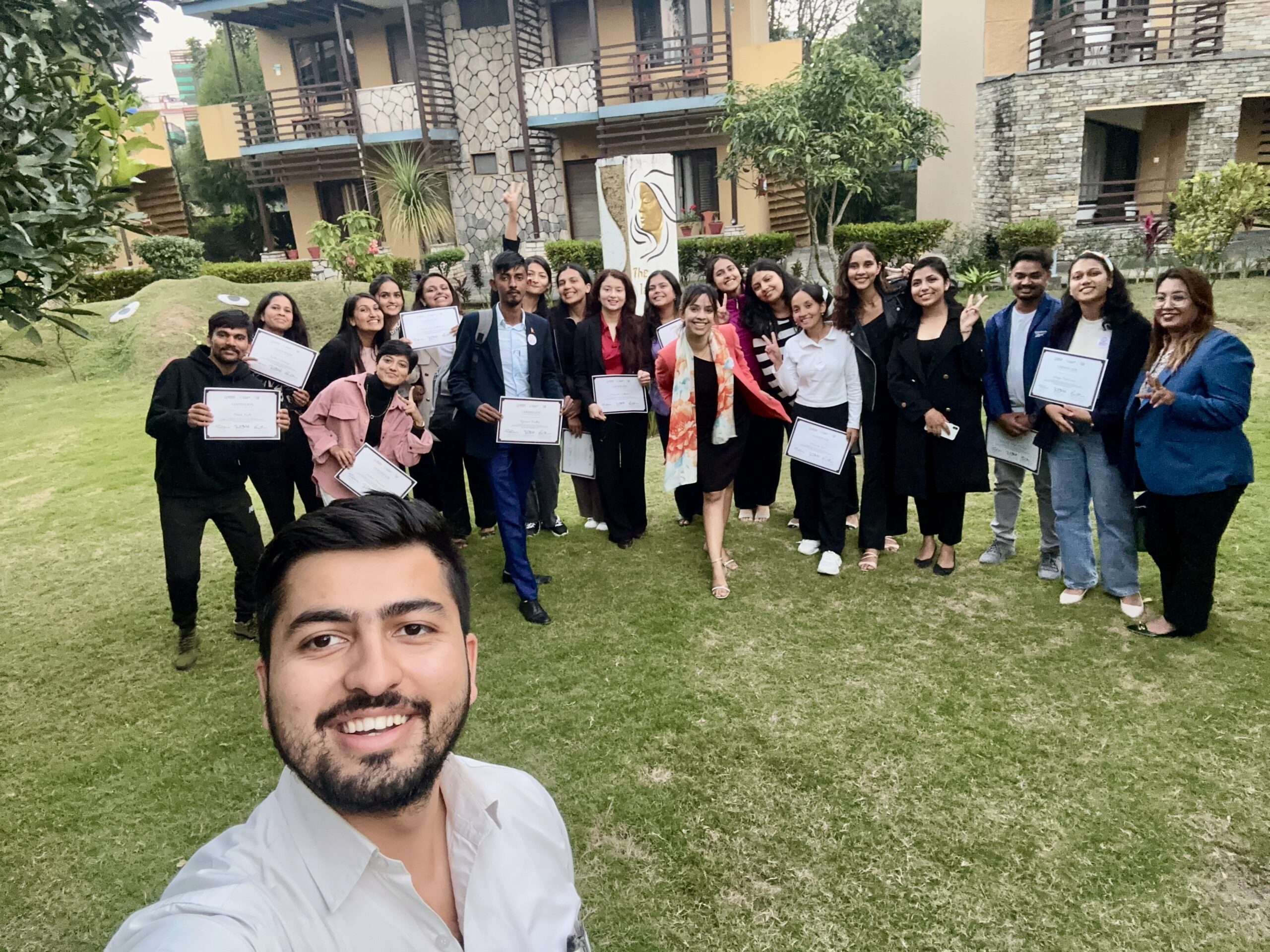
- 2023/11/09
Problem Statement
Menstrual health and hygiene represent significant public health and societal concerns in Nepal. Inadequate infrastructure for education, healthcare, and communication, along with religious teachings, resulted in the exclusion of women and girls from engaging in various daily life and community activities during their menstruation (Sharma et al., 2022). Nepalese women and girls have experienced negative impacts on health and dignity, sometimes, even resulting in deaths during practices of Chaupadi. Despite sporadic media coverage of these issues, it is noteworthy that there is a lack of comprehensive national data regarding the state of menstrual health and hygiene management, especially concerning adolescent girls aged 10-19, and the intricate challenges they encounter (WVIN, 2021).
Limited research and open discussions among parents and communities about these topics have resulted in a significant knowledge gap. The cultural taboo surrounding menstruation further hinders adolescent girls’ well-being and access to education. It is crucial to understand the impact of menstrual hygiene at individual, interpersonal, community, organizational and policy levels.
Menstrual Hygiene Management (MHM) is not just a matter of personal hygiene but a fundamental issue of human rights and equity. Individuals with disabilities encounter heightened difficulties during menstruation, and unfortunately, there is a notable absence of awareness and assistance tailored to their unique requirements. Primary issues include limited access to disposable menstrual products, challenges with proper disposal methods, dependence on female family members for changing sanitary materials, reliance on female family members to conform to Chaupadi practices, and the absence of accessible WASH (Water, Sanitation, and Hygiene) facilities in public spaces, compelling them to remain at home during their menstrual periods (WVIN, 2021). Thus, ensuring proper and dignified menstrual management requires that women and adolescent girls possess adequate awareness of menstrual hygiene management.
Project Description
The project ‘Youth Mobilization for Health Literacy ’ will address the critical issue of inadequate menstrual hygiene knowledge and awareness among communities and public schools in Nepal. This knowledge gap contributes to the spread of preventable diseases and negatively impacts overall well-being. The project aims to empower 1,500 teenage girls on sexual and menstrual hygiene across 10 community schools, by educating and deploying 40 health advocates, to promote a culture of hygiene in schools and communities, engage students in educational activities, support student-led initiatives, address the unique needs of individuals with disabilities, launch educational campaigns in schools, facilitate open discussions between parents and children on sexual health, and provide resources for long-lasting health literacy among Nepalese adolescents.
Target Groups
The target groups include community members particularly women and girls, and public school students by mobilizing youth engaged in the health education field who will serve as educators and change agents. By engaging these groups, the project aims to create a holistic and sustainable approach to improving menstrual health literacy and overall well-being throughout all seven provinces of Nepal.
Primary Objectives
The primary objective of the “Youth Mobilization for Health Literacy” project is to enhance menstrual hygiene knowledge and awareness among communities and public schools in Nepal, thereby creating a holistic and sustainable approach to improving menstrual health literacy and overall well-being throughout all seven provinces of Nepal.
Secondary Objectives
- To mobilize and empower 40 youth “Menstrual Health Champions” with health education backgrounds to actively engage with communities and schools.
- To provide comprehensive training and resources to the 40 champions to enable them to effectively educate community members and students on proper menstrual hygiene, including aspects such as sanitation and disease prevention.
- To conduct interactive workshops, campaigns, and practical demonstrations to raise awareness, modify behaviours, and promote good menstrual hygiene practices among the target populations.
- To utilize innovative methods such as Photo Voice, seminars, and conferences to enhance menstrual hygiene literacy, foster community engagement, amplify voices, and facilitate knowledge sharing, resulting in sustained behaviour change.
- To create a sustainable initiative by harnessing the enthusiasm and expertise of youth in the field, with the ultimate goal of significantly improving menstrual health and overall well-being in communities and schools.
CORE PROJECT TEAM MEMBERS PROFILE
Brandon G. Wilson, Senior Director, Center for Community Engagement in Health Innovation, bwilson@communitycatalyst.org
Brandon G. Wilson, DrPH, MHA is the Senior Director of Community Catalyst’s Center for Community Engagement in Health Innovation. The Center conducts community-based research to better understand how inequities in the US health system drive poor health outcomes for historically-excluded communities, and drives practice and policy strategies based on its findings. Dr. Wilson is also a member of the organization’s senior management team. Previously, Dr. Wilson served as a senior public health advisor with the Centers for Medicare and Medicaid Services (CMS), Office of Minority Health (OMH). Dr. Wilson led OMH’s efforts on sexual orientation and gender inclusion data collection, policy efforts in post-acute care settings, and social determinants of health. Dr. Wilson also led two models at CMS (the Accountable Health Communities Model and the Health Care Innovation Awards) and spearheaded its health equity working group, which laid the foundation the Centers’ embedding of health equity into its strategic plan. At the National Institutes of Health (NIH), Dr. Wilson led recruitment and retention efforts for increasing minority screening and enrollment in preventative and therapeutic vaccine clinical trials and participation in National Institute of Allergy and Infectious Diseases (NIAID)’s community advisory board. Dr. Wilson also directed projects regarding the culture of patient safety quality improvement for the NIH’s Clinical Center Office of the Director. Dr. Wilson has received numerous awards for exceptional public service, including recognition from NIH’s Director Dr. Francis Collins, NIAID Director Dr. Anthony Fauci, CMS Administrator Chaquita Brooks-LaSure, CMS Administrator Seema Verma, and CMS Administrator Patrick Conway. Dr. Wilson received a master’s degree in health systems management at George Mason University, and a Doctor of Public Health (DrPH) at Morgan State University. He holds faculty appointments at the University of North Carolina–Chapel Hill’s Gillings School of Global Public Health and Purdue University’s School of Health Sciences. His research interests include: using patient-centered and indigenous models of care; health economics outcomes research; policy analysis; and community-based participatory and action research to eliminate health disparities and advance health equity in underserved and disinvested communities.
Rohit Dahal, Founding Board Member, Contact Number: +977 9864889106, Linkedin: www.linkedin.com/in/rohitdahalofficial/
Rohit Dahal is the President of Rotaract Club of Pokhara Lakeside which is a youth base of 6047 members currently which includes 3533 male and 2514 female which targets leadership, international relations and collaborations, fellowship and networking. He is also the Executive Board Member of Youth Thinkers Society-Pokhara which focuses on youth development in his city and the main organizer of the Model United Nation events and trainings all over Nepal. He is a professional in Graphic Design, UX/UI Design and Branding.He is also an advocate for youth activism and a digital influencer. He is the Founder of AMES Academy, which works with marginalized and underprivileged communities. The academy has implemented targeted programs that equip individuals from these communities with essential technological skills like Graphic Design, Web Development, Digital Marketing etc and guide them for internship and placement opportunities. He is also the Co-Founder of United For Impact (UFI) Nepal an NGO which focuses on innovation, empowerment, collaboration, sustainability and integrity.
Prakriti Dhakal, Founding President, Contact Number:+977 9865041051, Linkedin: www.linkedin.com/in/prakritidhakal/
Prakriti Dhakal, a graduate from King’s College Nepal with a Non-Profit MBA, is a fervent advocate for community health. With foundational expertise in Medical Imaging Technology, she co-founded “United For Impact” and launched the “Hamro Bahini” initiative for Nepali adolescent girls. Leading the inaugural Nepal Health Conclave in 2021, she united global stakeholders to enhance Nepal’s health infrastructure. Collaborations with entities like the US Embassy and Rotary International, along with roles in the Pokhara Research Centre and Rotary International District 3292, attest to her leadership. Her international engagements include WHO simulations at UNSW Australia and conventions in Germany and Houston. Honored with awards from institutions like Oxford University and the World Eco-Hero, Prakriti envisions a Nepal where health services are universally accessible and affordable.
Prakriti Joshi, Founding Board Member, Contact Number: +977 9818659128, Linkedin:www.linkedin.com/in/prakriti-joshi/
Prakriti Joshi is a dedicated advocate for social change and empowerment. Holding an MBA in Nonprofit Management and a Bachelor’s degree in Social Work, Prakriti has actively contributed to a wide array of research and development projects, most notably in her current role as a Research Associate at King’s College. As a Founding Board Member of United For Impact, Prakriti has been instrumental in shaping the organization’s mission and fostering avenues to address critical social issues. Her commitment to education is evident through her work as a Teach for Nepal fellow. With a versatile skill set that spans research, project management, strategic planning, and facilitation, Prakriti is resolutely dedicated to driving long-lasting impact and advancing societal progress.
Bhawana Bhandari, Founding Board Member, Contact Number: +977 9846651937, Linkedin: www.linkedin.com/in/bhawana-bhandari/
Kamala Lama, Founding Board Member, Contact Number:+977 9813912290, Linkedin:www.linkedin.com/in/kamala-lama/
Anamika Tiwari, Founding Board Member, Contact Number: 0450347588, Linkedin: www.linkedin.com/in/anamikatiwariofficial/
Manisha Adhikari, Founding Board Member, Contact Number: +977 9860805205, Linkedin: www.linkedin.com/in/manisha-adhikari/
EVENT GLIMPSES
